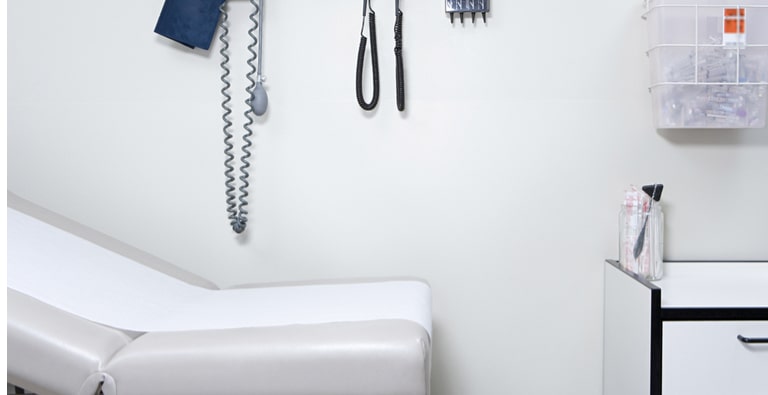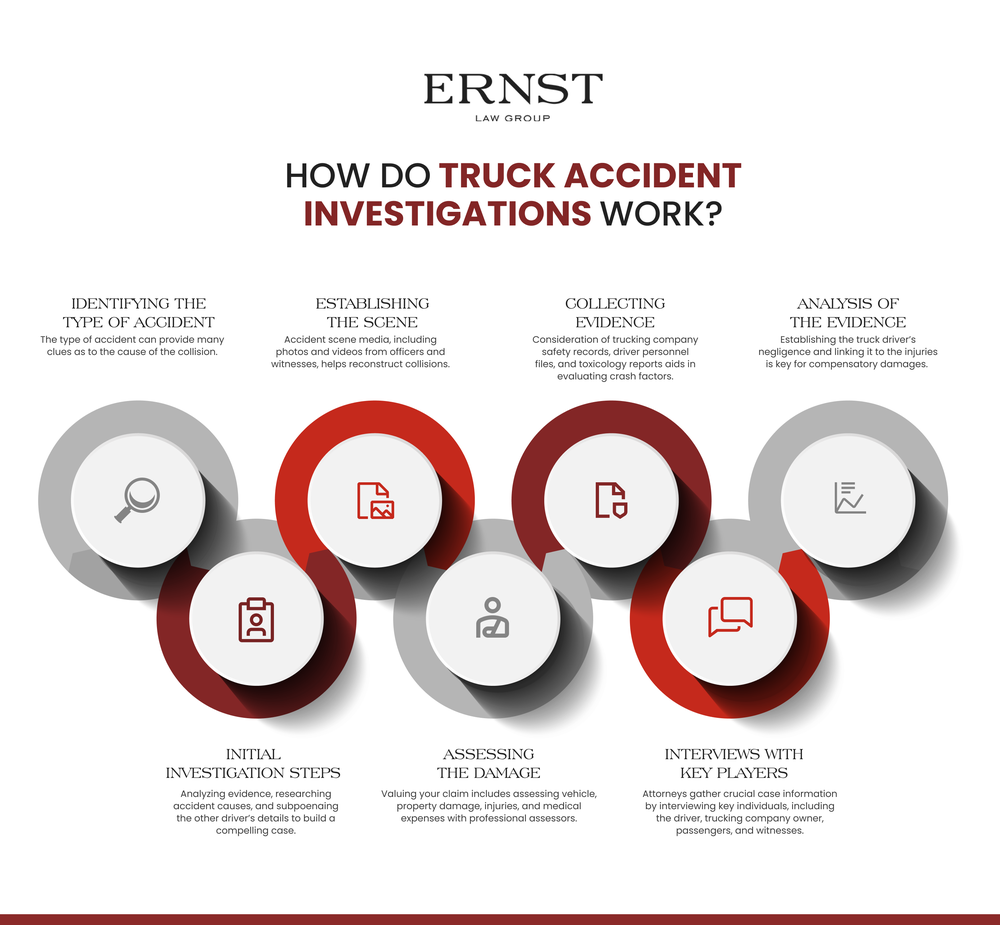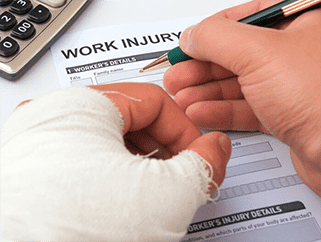If you have been injured in a semi-truck accident or a collision with another heavy-duty vehicle, knowing the classification of the vehicle and the laws related to its operation can help you determine a more effective case strategy. You can, therefore, increase your chances of obtaining fair compensation for the injuries or damages you have suffered. Don’t wait; speak to an experienced California semi-truck accident lawyer today to start your case and get the best chance at recovering full damages.
You can find a list of the most common heavy-duty vehicles involved in truck accident injuries and deaths below. Click on the section headings to learn more about the respective vehicle, including relevant laws and statistics for personal injury victims.
What is a semi truck?
A “semi-truck” is a freight-hauling vehicle consisting of a heavy-duty cab/engine attached to a large, multi-axle trailer. The combination of a cab and trailer is also sometimes called an eighteen-wheeler, a tractor-trailer, a big rig, and, in Great Britain, an “articulated lorry.”
Google Trends data shows that “semi-truck” is the most common term for the vehicle across most U.S. states. The exceptions are along the eastern seaboard, where “tractor-trailer” is most common, and in the south, where “eighteen-wheeler” is frequently uttered.
Semi-trucks get their name from semi-trailers. Since a semi-trailer does not have front wheels and cannot be hauled on its own without a truck cab, it is known as a “semi” trailer rather than a full or complete trailer. Since the specialized cab hauls the semi-trailer, it has come to be known as a semi-truck.
Semi-truck accidents can be particularly dangerous with a trailer attached since the large, heavy apparatus can damage several vehicles at once before coming to rest, potentially across multiple lanes of traffic. But even a cab by itself commonly weighs over 20,000 pounds, meaning that an accident that could be a minor fender bender if two passenger vehicles were involved instead turns catastrophic.
Laws aimed to reduce semi-truck accidents
The operation of semi trucks and semi-trailers is governed by the Federal Motor Carrier Safety Administration (FMCSA). This federal agency sets forth rules and regulations with the purpose of reducing crashes, injuries, and fatalities along the road. A secondary objective is to reduce unsafe practices that could lead to the destruction of the environment and unnecessary wear on the nation’s road infrastructure.
There are also a variety of California State institutions that enforce their own rules and regulations. These entities include the California Department of Transportation (Caltrans), the California Department of Motor Vehicles (DMV), the California Highway Patrol (CHP), and even the California Department of Food & Agriculture (CDFA).
State and federal laws for semi-trucks dictate minimum training requirements, safe driving practices, and laws like how large a load the truck can carry.
Types of semi trucks
Big rig accidents
Big rig accidents are another term for semi-truck accidents. They are serious incidents and often involve serious injury or death.
Big rigs consist of a tractor, which is the front part of a semi-truck, pulling a trailer, which is the back section that carries cargo.
When a big rig crashes, it causes ambulances, fire trucks, police, and safety crews to respond. The accident also can snarl traffic, and lead to further accidents, due to the freeway traffic not moving properly.
Big rigs, like semi-trucks, must abide by the Federal Motor Carrier Safety Rules. These are laws that apply to every state. Known as the FMCSR, these rules are designed to keep the public safe from the large big rigs that travel hundreds of millions of miles every year.
May be hard to believe for some, but lawyers actually play a large role in keeping the public safe as well. Lawsuits make it expensive for large commercial vehicles to take unnecessary risks, because of the fear of a case. When big rig trucking companies cut corners, they deserve to be sued, especially when the result is injury or death. Trial lawyers often refer to this concept as justice. If big rig companies are allowed to cut corners and the injured and wrongfully killed people do not sue, it is similar to the community giving the dangerous behavior of the corporation a pass to continue that behavior. The result will be more accidents and more unnecessary pain.
Double-rig truck accidents
A “double-rig” refers to a configuration where two trailers are joined together with a semi-truck in a train. The first trailer will be attached to the main truck cab/engine, while the second trailer will be hitched to the end of the first trailer. This configuration creates two articulating pivot points: one at the front of the first trailer as normal, and another 15 or more feet behind this point.
The combination of two trailers leads to complex physics, making the rig require more care and skill to drive, turn, and especially back. Articulating points allow the truck to generate extra force at the end of the final trailer, similar to the children’s game “Crack the Whip.” The train of trailers is also less stable compared to a single trailer, increasing the likelihood of accidents. A single operator mistake can in turn create a devastating double rig accident.
Because double rigs have complex laws and operational requirements, the average person may not know how to determine who might be liable for an accident and to what extent. An experienced double rig accident lawyer will be knowledgeable of the relevant state, federal, and case law. They may know, for instance, if the driver made a significant error during an operation that would not normally cause an accident with a single semi-truck/trailer combination. With this information, they can present their arguments and help double-rig accident injury victims pursue the maximum available compensation for their damages.
Why double rig accidents occur
Unfortunately, many truck drivers do not have the sufficient qualifications, training, or experience to operate double rigs. They are instead simply expected to “learn while driving.” However, having two articulating hitch points can create challenges that a single one never would. The skills needed to operate a single semi-truck/trailer combination do not always translate.
This situation is clearly not safe for other drivers on the road, and trucking organizations have long pushed to have mandatory safety training and requirements. Fortunately, California is a state that mandates special testing and licensing before you can operate a double rig. In other states, though, these trucking requirements differ. Often, the credentials needed to drive a double have the exact same requirements as driving a single semi trailer: just a commercial driver’s license.
As an example of how difficult managing a double rig can be, consider the act of backing up. Backing a double rig is significantly different than backing a regular tractor-trailer. It has double the pivot points and therefore does not behave as a normal trailer when the driver is reversing. When you back to the right, the furthest back trailer will angle to the left. As with most things with these large trucks, any type of unsuspected movement with semi-trucks can cause accidents, injury, and death.
There is even an app for helping back a double trailer. ZF makes an application that is still in the demonstration stage. The app allows drivers to back up the semi-truck through the electric power steering. This allows the driver to back up the truck remotely. It is not a commercially available application yet, but rather a way to demonstrate the safety of backing up two trailers at the same time using technological assistance. As it is now, a truck driver must call on the radio or repeatedly get out and look to make sure they are not going to hit anything. The situation illustrates just how risky double-rig semi trucks can be to the health and safety of people on public roadways.
Ore hauler truck accidents
An ore hauler is a large heavy-duty construction vehicle or specialized semi-trailer used to haul loose materials. Sometimes, an attached-bed dump truck or haul truck will be used instead of a semi-truck and trailer combination. Common materials carried using an ore hauler vehicle include mined ores, crushed rock, loose dirt, and construction debris.
The weight of ore haulers and the nature of the loose materials they carry can lead to catastrophic accidents that have a higher likelihood of serious injury or death. The operation of ore haulers is therefore strictly governed by Federal Motor Carrier Safety regulations. There are also likely to be rules applied to the respective industry operating the vehicle, such as mining or construction injury.
Having a specialist ore hauler accident lawyer with knowledge of specific industry regulations and past case outcomes can help victims account for the uniquely dangerous circumstances ore hauler accidents present. With the knowledge of their ore hauler accident lawyer at their side, they can pursue the maximum available compensation to help them recover and continue their lives.
Why hauler accidents are so dangerous
Ore hauler accidents can be particularly dangerous for a number of reasons, frequently causing serious injuries, paralysis, and death in the aftermath. Firstly, loose materials can shift around during transport. The complex physics of this shifting material can sometimes catch drivers by surprise, such as during sharp turns or sudden stops. A minor incident like a jerky steering correction can transfer energy to the contents of the hauling bed, possibly forcing the vehicle off course or even overturning the ore hauler.
The second danger factor of ore hauler accidents is their unsecured cargo. Some trailers and haul truck beds leave the materials exposed. Others attempt to secure the material with tarps. In either event, a major ore hauler collision or turnover will spill the contents. Accident victims can be injured by the weight of the debris or trapped underneath it, risking suffocation.
In addition to traffic accidents, ore haulers can also have accidents with the loading and unloading of material. Materials are often loose, and hundreds of loading and unloading events occur every day. Each and every single one of these loading occurrences invites the risk for a deadly or dangerous incident.
When operated off-highway, ore haulers pose tremendous risks to fellow workers and contractors. Job-sites are often much more dangerous than the freeway or clearly marked roads. Recognizing this elevated risk, job foremen have frequent safety meetings and discussions about how the heavy vehicles will operate around the site. Even still, the fact that there are cones instead of painted lines and unpredictable comings and goings of workers puts everyone in peril.
Tanker truck accidents
A tanker truck is a semi-truck hauling a specialized storage tank trailer that contains chemicals or other liquids. These heavy-duty vehicles tend to have shorter lengths compared to the average tractor-trailer configuration, but they happen to be even more dangerous.
A tanker truck trailer can carry anywhere from 5,500 to 11,600 gallons of liquid. These liquids can be flammable, acidic, toxic, or otherwise hazardous to your health. An overturned tanker can therefore cause injuries not just from the initial crash. Explosions, fires, and exposure to hazardous materials are all possible. Many vehicles are likely to be affected in such a crash, and the environmental effects of a spill can contaminate properties, waterways, and sensitive ecological habitats.
An expert tanker truck accident lawyer is often called upon to handle the aftermath of such an incident. Accident victims can benefit from a tanker accident attorney who has extensive knowledge of the laws governing tanker transport and the rules that apply to specific industries. For instance, certain liquids may require a higher standard of care or fall under special compliance rules to reduce the chances of an accident.
Why tanker truck accidents are so dangerous
Volatile liquids aren’t the only reason that a tanker truck collision can be so worrisome. The physics of the tanker trailer itself poses all sorts of problems to drivers.
First, tanker trailers tend to have a higher center of gravity than the typical semi-trailer. The tanks are set upon a specially engineered flatbed that makes bumps less likely while allowing for easy access by machinery. Carrying the load up high increases the risk of the vehicle overturning during a tanker truck incident.
Secondly, the liquids inside the tanker can pose problems of their own. When the tank is “dry”, or empty, carrying the load is similar to any other semi-truck. A full tank creates the mentioned high center of gravity issue, forcing the operator to adjust their driving habits to reduce risks of rolling over or other incidents. Partially full tanks, though, pose the biggest threat of serious accidents.
When a tanker truck is partially full, the liquids inside of them have space to move during transport. The sloshing movement of the liquid can generate forces similar to a coastal wave, causing the truck to lurch unexpectedly or resist changes in direction. Sometimes, the liquids can slosh around so violently that they turn an otherwise stable truck into a deadly juggernaut.
All of these risks on top of the hazards the liquids themselves create mean that tanker truck drivers must be highly trained and certified. They are expected to exercise a greater degree of care during operation, especially when hauling a partially full tank. Accordingly, they may be held accountable for more liability or negligent behaviors compared to the average truck driver.
18-wheeler accidents
Eighteen-wheeler accidents are another name for a semi-truck accident that occurs when the truck has 18 wheels. These accidents are just as serious as semi-truck accidents, and you will most likely need professional medical and legal attention to help sort out all of the complications that will arise.
Why they’re called eighteen-wheelers
Simple enough, these types of semi-trucks have eighteen wheels. Each cargo container has 16 wheels supporting its weight. The cab of the 18-wheeler contains 10 wheels, but eight of them are already supporting the cargo container. In total, there are 18 wheels on an average size semi-truck.
Eighteen-wheelers suffer the same types of problems that cause semi-truck accidents. They face problems with rollovers, loss of control, traveling too fast, long hours, and other types of accidents.
Loss of Control
Eighteen-wheelers generally will weigh about 40,000 pounds when they are fully loaded. This is 20x the weight of a car. They have trouble stopping quickly, turning quickly, or avoiding sudden emergencies. Trucking safety experts, such as J.J. Keller will frequently instruct truck drivers to be looking way down the road, to try to spot problems as early as possible. Eighteen-wheelers do not react nearly as quickly as other vehicles, and the more time an 18-wheeler driver has, the more likely they can avoid a collision.
Traveling too fast
Eighteen-wheelers will get in accidents when traveling too fast. Traveling too fast is more dangerous for an 18-wheeler because the weight of the truck makes it take significantly longer to slow down. When lawyers are needed due to insurance not paying injured parties, lawyers will often hire experts to demonstrate how much longer it takes to slow down a semi-truck from 55 miles an hour. These experts testify time and time again, that there is a certain area in front of every 18-wheeler that is called the “kill zone.” If there is something that suddenly is in this zone, there is nothing the truck driver can do to avoid hitting you.
Long hours
Eighteen-wheeler drivers have regulations that state the number of hours they can work. However, drivers often will take and drive more hours to make a larger paycheck. This leads to sleep disorders and endangers everyone else driving near and around that 18-wheeler.
Jackknifing
This is a slang term that is often used by the media to describe an eighteen-wheeler accident where the trailer is 90 degrees perpendicular to the semi-truck cab. When an eighteen-wheeler trailer gets into this position, an accident will happen. The only question left is how bad the accident will be.
Semi-trailer accidents
A semi-trailer accident occurs when there is an accident between the semi-trailer and another vehicle or person. Sometimes there will be no tractor involved as if the semi-trailer was parked incorrectly, collapsed, or tipped over on another vehicle or person. Other times, the semi-trailer is the object that causes the accident, and there is no damage to the tractor (the front portion of the semi-truck).
Semi-trailers also can cause accidents when they are improperly hooked up. When a trailer is improperly hooked up, there are a number of problems that can lead to a semitrailer accident. Improper attachment of a semitrailer can make the brake lights and lighting on the sides of the trailer fail to function. This leads to poor visibility and surprises other vehicles when the semi-truck slows, but no brake lights indicate this slowing to other drivers. This causes vehicles to rear-end the semitrailer.
Common reasons semi-trailer accidents occur
Semi-trailer accidents can also occur when the trailer has unordinary equipment. Sometimes equipment on the semitrailer can be unbalanced, prone to movement, or even come unsecured while in motion.
Unbalanced
An unbalance in the semitrailer can make it impossible to steer. Most notable are the semitrailers that haul liquid. When the liquid semitrailer is empty or full, the trailer behaves normally. However, if the semitrailer is half full of liquid, the trailer is extremely prone to rollovers, tipping over, jack-knifing, and losing control, because of the high center of gravity of the trailer, and the uneven weight distribution after the trailer starts moving.
Prone to movement
When semi-trailers are stacked improperly, or there are two or even three semitrailers, the trailers are considered prone to movement. This means that the trailers are more likely to move inconsistently with the way the truck driver expects. Improperly stacked loads will shift and will force the semi-truck driver to correct or over-correct.
Any inconsistent movement is likely to cause a semitrailer accident. When there are two or three semi-trailers, they function with different pivot points, causing the trailers to veer out of lane on turns, and be very difficult to back up in a straight line.
Unsecured movement
When semi-trailers have their load shift, move, or have an apparatus that comes unhinged, the resulting movement can force the driver of the semitrailer to be unable to control his vehicle. The unsecured movement on the semitrailer is unexpected and usually occurs when the semitrailer is in motion, and often around a turn.
These types of movement, sometimes accident-causing movement can be avoided with proper pre-trip and post-trip inspections. The inspection cannot prevent unsecured movement, but it can reduce the risk of the movement as much as possible
Double-wide truck accidents
A “double-wide truck” can refer to any truck carrying an oversized load. Since the maximum possible load is often double the width of the flatbed semi-trailer, trucking industry and highway safety officials often refer to the load as a “double wide”.
Large mobile homes are one of the most common loads being hauled on a double-wide rig. Other possible materials include heavy vehicles, large construction materials, intact slabs, or quarried stone. All of these materials generate significant challenges compared to a typical enclosed semi-truck load.
In response to the difficulty of carrying an oversized load and the catastrophic injuries or deaths that could result from such a load overturning, double-wide truck operators have a higher standard of care than the average trucker.
Laws set by the Federal Motor Carrier Safety dictate how such a load must be secured, how to make the load visible to other drivers, how to inspect the vehicle and load before hauling, and how to generally operate the vehicle safely. There are also extremely strict rules governing what routes a double-wide rig is allowed to travel through. Ignoring any of these rules and regulations carries the potential to cause a major double-wide truck accident that could easily result in serious injury or death.
Proving that a double-wide truck operator or hauling company was negligent often requires the help of an experienced double-wide truck accident lawyer. A double-wide accident attorney will be familiar with the unique rules and regulations put in place to reduce the risk of an accident. They can therefore document more effectively where a liable party may have been negligent in their duty of care to others on the road.
Why double-wide truck accidents are so dangerous
There are several factors that make operating a double-wide rig much more dangerous than any average semi-truck load.
For starters, large loads can obscure the view of the driver and create unusual blind spots. While large semi trucks have special mirrors used to view along the length of the trailer, the load can still block visibility from certain points. Driving with half a house behind you can also mean having a limited line of sight in most directions. Knowing this, drivers are expected to exercise extreme care before changing lanes or maneuvering.
Secondly, double-wide loads absolutely have to be secured properly. Each large load presents its own challenges for how to be fastened down and completely secured even while the truck moves around at highway speeds. Wind resistance, unusual shapes, and shifting weight can all create challenges that must be accounted for before the truck can safely depart.
Speaking of challenges, the varying nature of double-wide loads can create its own problems. Something like a large trailer home may be partially unbalanced on one side. Other oversized materials, such as large concrete sewage drains, can potentially wobble or create awkward centers of gravity. Even an experienced double-wide semi-truck driver could get caught off guard by an unfamiliar material they’re hauling.
In the same vein, the unpredictable nature of oversized loads presents another problem to trained and experienced double-wide rig operators. They may rarely haul the exact same material twice, preventing them from being able to operate their vehicle by a generic set of safe practices. Instead, they must be able to predict and accommodate the unique challenge each load brings.
Tractor-trailer accidents
A tractor-trailer accident is often a serious accident that causes serious injury, and sometimes death. Last year alone, there were more than 3,000 fatalities that involved tractor-trailers in the United States.
Each time there is an accident a tractor-trailer causes serious injury or death and affects more than just the injured. The family of the injured must learn to accommodate the injuries and possibly permanent changes. If there is a death, the family and friends must adjust to the hole in their life. Tractor-trailer accidents are often horrific, yet every year organizations get together to try to reduce the risk of future tractor-trailer accidents.
The Federal Motor Carrier Safety Regulations are in place for a reason. The rules and regulations are applicable to motor carriers in most states and when trucks travel between at least two states. In addition to these rules, there are companies that do nothing except provide education and safety training courses for truck drivers and tractor-trailer companies to try to reduce these accidents as much as possible.
Best way to reduce tractor-trailer accidents
Tractor-trailer accidents are not caused by a single wrong act. Insurance companies would like you to believe it is one fluke problem that leads to an accident. It is almost never a single problem. Accidents occur from a series of cutting corners and failures that add up until there is the final incident.
For example, this is a hypothetical based on a true story: A tractor-trailer turns left across a highway, and a truck hits the side of the tractor-trailer, killing the individual driving the truck.
At first glance, the only mistake is that the tractor-trailer driver turned left across a highway. Yet when the tractor-trailer accident is evaluated, there are multiple wrong acts that all lead to the result.
- The tractor-trailer had little lighting on the side of the truck, so traffic traveling at the side of the truck could not see it.
- The tractor-trailer pulled across the freeway at night
- The tractor-trailer’s route did not include a safe place for the tractor-trailer to turn around
- The road was not designed with a large enough merging lane for the tractor-trailer, and therefore once halfway across the road, the tractor-trailer had to wait until traffic was clear to pull onto the highway
- The tractor-trailer driver had driven three days in a row, with more hours than allowed by law
- The tractor-trailer company booked the driver for too many days in a row. The tractor-trailer driver never read any safety guidelines regarding pulling across highways and did not consider it a dangerous condition
- This is the start of all the things that went wrong. Each one of these actions was a single incident, that ended up culminating in the large collision that lead to a man’s death
Lawyers were able to discover all of this information only after a case was filed. The news did not discover it, the highway patrol did not discover it, nor did the police. The lawyers were the ones who learned of all the wrongdoing and made the community a safer place by bringing the case. The case result was one that told the tractor-trailer company that cutting corners is not cost-effective when it comes to safety.
Documenting injuries
Documenting the injuries you have is the most important thing with respect to receiving compensation later from the at-fault drivers.
You cannot document your injuries yourself. Insurance companies that are required to pre-approve medical treatment do not trust handwritten notes, no matter how methodical. Insurance companies will only authorize treatment or eventually compensate for injuries that have medical record documentation. The medical record documentation includes all doctor visits, all doctor bills, diagnoses, MRIs, CT scans, and any other studies ordered by the primary care doctor.
Treatment tip:
If you go to your doctor as a result of a semi-truck injury, you cannot tell the doctor, “I am fine.”
This is the best way to guarantee that you will not be fined in the long run. The doctor will write down that you seem to be doing well. The problem will occur a few weeks later when your knee is hurting you. Nothing else has happened, and to you the knee hurting is an obvious result of the semi-truck accident.
However, the medical records tell a different story:
Medical record after the accident: The patient says he/she is feeling better. No pain.
Medical record a few weeks later: Patient now says knee hurts as a result of semi-truck accident.
You will have a difficult time getting to see any specialist or have any insurance-approved treatment as a result of the first medical record. The BEST way you can get yourself denied care, later on, is by saying the very common phrase: “I’m fine. No really, I am okay and just want to go home. I’m not hurt.”
If you are okay, don’t go to the doctor. If you are going to the doctor, you need to tell the doctor exactly what is bothering you.
Type of Truck Accident claims we handle in San Luis Obispo
If you have been involved in a truck accident, you may be entitled to make a third-party liability insurance claim against the truck driver or their employing commercial carrier company. If the insurer decides to dispute whether or not the truck driver or their employer was at-fault (liable), then the case can proceed to a civil claim known commonly as a truck accident injury lawsuit.
You can file your claim with the assistance of an experienced truck accident lawyer, who can help assemble evidence, develop a case strategy, and follow through with all the necessary paperwork and procedures.
Semi-Truck accidents most common claim is an injury claim. there are multiple types of injury claims that can be brought after this type of accident.
Filing a Personal Injury Claim After a Truck Accident
If you have been injured in a truck accident, you may be eligible for compensation for your injuries if the accident was the fault of the driver or their employing truck company. In the event that the third-party liability insurance company assumes fault on the part of their policy holder, they will typically offer a truck accident settlement amount that is intended to cover the medical expenses and other related costs of the accident. Do not accept a settlement that does not completely cover your expenses as well as fair compensation for your related pain, suffering, and permanent loss of quality of life. Accepting a settlement too early means you release the insurer of further liability. You could take the check now only to realize you have tens of thousands of dollars of long-term medical expenses that weren’t included. For these reasons and many more, it can literally pay to hire the help of an experienced semi truck accident attorney. They can help you estimate how much your injury costs will be in total and prepare documentation to back up your estimate. They can also negotiate with insurers on your behalf and, if need be, take the case to court if no settlement agreement can be reached. Insurers working with an injury victim know that the average person filing a truck accident injury claim is not familiar with the astronomical costs of healthcare nor their right to negotiate for a more adequate settlement. Know your legal right to negotiate, and avoid agreeing to release the insurer or the insured from liability until you have a fair settlement that includes all of your damages in writing.
WHAT’S INCLUDED IN A TRUCK ACCIDENT INJURY CLAIM?
Your truck accident injury claim will include several components:
- Medical costs
- Incidental costs necessary for receiving medical treatment
- Lost income
- Pain and suffering
- Disability
Don’t overlook any of these components when you’re estimating how much a fair settlement might be. Assembling the documents necessary to put a final, round number on the total costs takes time and research, but this work strengthens your case and makes you more likely to receive a fair settlement.
TAKING YOUR INJURY CLAIM TO THE COURTS WITH A TRUCK ACCIDENT LAWSUIT
The majority of injury cases are settled out of court because insurers and the injured both want to avoid expensive and time-consuming procedures. A third-party liability insurance company will most often attempt to reach a fair settlement amount once they recognize that the injury victim recognizes the full value of their case and has the documentation to back it up. However, some third-party liability insurers will fail to agree on a fair settlement. That, or they may dispute some aspects of the claim, including the extent of the victim’s injury and whether or not the policyholder was in fact at fault. In these instance, a truck accident attorney can file a civil complaint, otherwise known as a truck accident lawsuit. The lawsuit proceeds until a judge, jury, or arbitrator makes a final ruling on fault and the amount to be paid. At any time during court proceedings, a new settlement offer could be made and the lawsuit dropped.
- Learn More: How Do Truck Accident Investigations Work?
When there is a semi-truck accident, there is a property damage claim for all items of property that are damaged in the accident. these can include damage to your vehicle, damage to laptops, clothing, cell phones, art, sports equipment, etc.
Filing a Property Damage Claim After a Semi Truck Collision
Not everyone involved in a semi truck accident gets injured, but they are almost guaranteed to have damage to their vehicle or personal belongings. These eighteen wheeler accident victims can file a property damage claim with a third-party liability insurance provider if the driver of the truck or their employer assumes fault for the accident.
A property damage claim pays for the full cost of repairs to return the vehicle to the exact state it was in before the accident — or as close to it as possible. Your vehicle will be assessed by a body shop and possibly also a mechanic. These auto shops will then provide an estimate on the costs of repairs to the insurance company, who will then either agree to the costs needed to repair the vehicle or decide to declare the vehicle a “total loss.”
Vehicles that are “totalled” or declared a “total loss” by the insurance company are acquired by the insurer in exchange for a settlement in the amount of their estimated value of the vehicle.
This estimate usually accounts for the actual cash value (ACV) of the vehicle based on market factors. Some insurers instead provide replacement cost compensation, which is the cost needed to replace the vehicle if you wanted to go out and buy another one of the exact make, model, year, and condition. A replacement cost settlement is almost larger than ACV.
DISPUTING YOUR PROPERTY DAMAGE CLAIM SETTLEMENT OFFER WITH HELP FROM A TRUCK ACCIDENT LAWYER
Usually, repairing or replacing the vehicle is a straightforward process, even if it takes some time. However, the insurance company may choose to debate the costs of repairs or the amount you are entitled to receive.
Common objections include “that repair shouldn’t cost that much” or, “we are not going to pay to repair damage that existed before the vehicle was in an accident.”
If the insurer you are working with wants to negotiate these numbers, you must provide documentation to prove they are in error. For instance, if they want to allege that your front bumper was already partially damaged before the accident, you can provide a recent photo proving otherwise.
Working with a truck accident lawyer can help you negotiate in your favor and potentially receive a larger settlement than if you had negotiated on your own. An attorney is especially valuable to those seeking a joint property and injury truck accident settlement.
DAMAGE TO PROPERTY OTHER THAN YOUR VEHICLE
Most insurance policies for truck accidents provide coverage for property damage up to a certain amount, which includes the costs of personal property damaged in the accident other than the vehicle.
If you $800 smartphone, for instance, was destroyed in the semi truck wreck, then you can include its value on your claim. Note that claiming property damage applies to passengers and not just the owner or driver of the vehicle involved.
A wrongful death case can be filed when someone is killed in a semi-truck accident. the family of the deceased person has the right to bring the case. there are technical rules about who can bring a wrongful death case. these rules often vary by state, and the rules need to be confirmed by an attorney.
After a heavy commercial accident ends in the unfortunate death, the victim’s surviving family members have the option to bring forth a wrongful death claim. Eligibility to file a survivor’s claim starts in a hierarchy, allowing the victim’s spouse and then their children the first opportunity to take action. If there is no surviving spouse or children, the option to take up the claim falls on the victim’s parents, siblings, and other extended family members. There is also a second type of wrongful death claim that can be filed by the executor of the deceased’s estate. This claim is known as a “survival action,” and it can be used to recoup losses to the estate resulting from the accident.
Medical bills
If you have been in a truck accident, you are likely to have severe injuries that require extensive treatment. In turn, you will likely face an overwhelming amount of medical bills. These bills could easily threaten your future financial stability. In fact, medical debt is the number one reason people file for bankruptcy in the United States.
Fortunately, most people have multiple options at their disposal for paying medical bills after a semi-truck accident. Don’t try to reduce your initial debt by avoiding treatment while waiting for a truck accident settlement. Your settlement is intended to reimburse you for your expenses.
If you have not received adequate treatment and have fewer expenses, you are going to get a lower settlement. You may also have insurers or truck accident lawyers defending the at-fault driver allege that you are not actually hurt since you did not feel the need to seek treatment.
The importance of medical treatment and bills after a truck accident injury
If you have been involved in a semi-truck accident, seeking immediate medical treatment should be your first priority — even if you cannot tell if you are injured. If you do not get proper medical care in a timely fashion, you risk further injury. You also reduce the chances that you could make a full recovery.
In addition to not healing properly, proper medical treatment and the medical bills that go with it are considered part of the value of your semi-truck accident case. If you do not attend your doctor’s visits and follow the doctor’s recommendations, in addition to not getting the care you need, you are sabotaging the value of your case.
You cannot receive compensation in a semi-truck accident settlement for treatment you did not receive and bills you did not pay, after all.
Don’t avoid your treatment or medical bills after a semi-truck accident
Some people who are injured adopt the “I’m fine” mentality. This philosophy can work well when dealing with a cold or flu, but when there is a semi-truck-involved injury, the “I’m fine” approach makes it difficult for doctors to evaluate your injuries.
Furthermore, if doctors cannot evaluate your injuries and provide proper medical treatment, you will have no documentation of your injury. The third-party insurance company or lawyer representing the at-fault driver could argue that the injury victim is not as injured as they said or in fact not injured at all.
Medical records and medical bills are the principle method of proving you have been injured to a truck company and their insurance company. With little or no medical records documenting your injuries, it does not matter how hurt you are, there can be no compensation.
In addition to giving yourself the best chance to heal, proper medical treatment allows insurance companies to evaluate the extent of your injuries. Insurance companies have software that will calculate the value of what a case is worth. The semi-truck insurance company will put the numbers from your bills into their software program, which will display a recommended settlement value. This number is based off the medical bills that you have as a result of the accident as well as other factors, like your diagnoses.
The lawyers representing the at-fault party (the one who was driving badly and caused the accident) will argue that you are not hurt if you do not seek medical treatment. It does not matter the actual seriousness of your injuries, if you did not go to the hospital or seek some type of medical treatment, this is a fact that will be used against you. Always hire a truck accident lawyer after you seek medical attention.
Who pays medical bills after a truck accident injury?
If you have been in a truck accident with a heavy commercial vehicle, you are very likely to have a number of serious injuries. Treating these injuries can often take years of multiple surgeries, procedures, rehabilitation, and medication. The total costs of these bills can be overwhelming. In fact, medical bills are reported as the most common cause of bankruptcy in the United States.
Being in a severe semi-truck collision shouldn’t have to mean being shackled with debt on top of having a painful recovery. Luckily, you likely have many options at your disposal for paying medical bills after a truck accident, including hiring an experienced truck accident lawyer.
Receiving payment from a truck accident settlement or court award
Your options for who pays after your accident increase substantially if one or more drivers other than you have been determined to be “at fault”.
In California, the courts can determine fault in vehicle accidents, and the at-fault party is responsible (liable) for paying all of the related medical costs and personal property damages from the crash. Some drivers may be deemed at partial or “comparative” fault, which means they’ll pay a percentage of the damages according to their contribution to the circumstances that led to the accident.
Often, a driver or their insurance provider will voluntarily declare that they were at fault after an accident and offer a settlement to cover all the damages they were liable for. This settlement offer may not be considered fair or adequate, which means the victim or their truck accident lawyer will have to negotiate for a different offer.
If no agreement can be made as to fault or a fair settlement, the injury victim can file a truck accident injury lawsuit to let the court decide who was at fault and how much they owe the victim in total.
However, until a settlement is paid or a court awards payment to the accident victim, the victim usually must pay for their own medical treatment. They can use their own insurance policies, if they have them, or they may be forced to pay out-of-pocket.
In rare instances, medical providers will be willing to grant a “lien” agreement that permits you to delay payment until you have received a settlement or award from a third party. These agreements often require the participation of a truck accident attorney and assurances that the injured victim has a strong case.
If a truck accident injury victim does not have personal insurance or the means to cover their medical bills out-of-pocket, they will have to owe a debt to all of their healthcare providers. These debts may come with interest, fees, penalties, and possibly even civil action (lawsuits) at the provider’s discretion and California law’s permittance.
Who pays while I’m waiting for my injury settlement or lawsuit ruling?
Insurance settlements and court awards are meant to reimburse you for your medical expenses. Because you should never delay treatment and because of the long amount of time it takes to receive a settlement, you will need to find a way to manage your medical bills immediately.
You can use the following options to pay for your truck accident injuries immediately after they occur:
- Medical insurance
- Med pay
- Workers’ compensation
- Loss of work
- Returning to work
- Medical liens
- Medical leave
A note on subrogation and cost negotiation, when insurers can take money from your truck accident settlement
If you pay your medical bills through a personal insurance policy, such as through medical insurance or workers compensation insurance from your employer, then these insurance companies will likely want to be reimbursed when you receive your settlement. The act of taking this money as compensation for their coverage is known as “subrogation.”
Also, note that sometimes the final medical bill you receive is not always the same dollar amount as what the third-party liability insurance coverage pays. They may argue that certain costs are not “reasonable,” such as paying $1,400 for an x-ray.
Paying 100% out of pocket (self-pay) without negotiating your charges may therefore mean you don’t recover 100% of your expenses from your settlement. However, if you have paid through your personal insurance, then your insurers are only entitled to subrogation of the final negotiated cost.
Paying with medical insurance after a truck accident injury
If you have medical insurance, use it to pay for your emergency department (ER) visit and any treatments you receive in the immediate aftermath of the truck accident.
You will be responsible for making any copay fees or deductibles through another available payment method. Med-pay (PIP) auto accident insurance may potentially cover your copays, but this depends on the practices of the insurer.
Keep all receipts and billing invoices you receive. These documents will be important to your insurer as well as your potential truck accident claims. You will also want to keep them for your own record-keeping purposes and to provide them to your truck accident attorney.
How deductibles work
Most insurance policies will have a deductible. Your deductible refers to the amount of payment deducted from your insurance coverage. For instance, if you have a $1,000 deductible and your emergency room visit ends up costing $12,000 total, you will only receive insurance coverage on $11,000 of that total. The remaining $1,000 must be covered by alternate means, including potentially your Med-Pay (PIP) insurance.
Changing insurance plans
If you sustained serious truck injuries that require long-term care from accident injury doctors, then you are likely to rack up far more healthcare costs than you anticipated when you first purchased your medical insurance policy. In other words, your circumstances have changed compared to when you made your first decision.
Accordingly, you may wish to change to a healthcare plan that offers a greater degree of coverage or a smaller deductible.
Unfortunately, the health insurance you have at the time of your accident cannot be altered or increased as it relates to your initial treatment. The date of the injury determines the insurance coverage policies you have for those initial ER visits and procedures.
However, if you want to change your insurance policy to provide more coverage or a lower deductible after the accident, you have that option. When filling out new information for your updated policy, keep in mind that you must provide truthful and accurate information. You must disclose that you are hurt or currently if you are currently suffering any additional medical problems.
The good news is that, as a result of the Affordable Care Act (ACA), insurance companies cannot deny selling you insurance based off of prior medical conditions or injuries. Your new coverage terms may also potentially apply to follow-up procedures, treatments, and medications on a case-by-case basis.
Types of medical insurance
There are two main types of medical insurance:
- Health Maintenance Organization (HMO)
- Preferred Provider Organization (PPO)
Additionally, you may have a medical coverage component to your auto insurance policy, known commonly as “Med Pay” or PIP (a Personal Injury Protection policy).
HMOs are considered a specialized type of health insurance, whereas PPO can be considered as the default option when purchasing insurance. If you are unsure about your plan or your details, such as if your policy is provided by your employer, simply file as normal but follow up by speaking directly to an insurance company representative.
Can workers’ compensation pay for a truck accident?
Under California law, all employers are required to carry workers’ compensation insurance for their employees. This form of insurance covers medical expenses and partially lost wages for accidents that occur while an employee is on duty. If the employee happens to be driving and gets into a semi-truck accident that causes an injury, workers’ compensation can potentially apply to the resulting truck accident injury claim.
However, there are many exceptions to work-related driving that we’ll outline below. Simply put: unless your boss specifically asked you drive during work hours (“on the clock”) for a specific work-related reason, you may technically be driving at your own discretion rather than under your employer’s instructions.
If you file a workers comp claim and also file a liability claim against a third party, your workers comp plan will pay out first to cover your immediate expenses. Then, your workers comp insurance company will seek reimbursement (subrogation) for the specific expenses they covered once you receive your truck accident settlement. In some cases, your workers compensation insurer will join your claim and potentially even help cover some legal fees.
Unlike third-party liability insurance, though, workers comp only covers specific medical expenses and lost wages. It cannot compensate you for pain and suffering, mental anguish, or long-term expenses related to disability or a medical condition resulting from your eighteen wheeler accident injuries. For this reason, accident victims eligible for workers comp should also strongly consider filing a third-party claim with the help of your truck accident attorney against any potentially at-fault drivers involved in your truck accident.
When do auto accidents apply to workers’ compensation?
For your driving to be considered work-related, you have to be performing a specific task while technically on-the-job.
In other words, you cannot simply drive to or from the place where you work. During those moments of commuting, you are not on the job but going to or coming from your job. Similarly, if you leave to get lunch and get tangled up in a semi-truck collision, you are still not technically on the clock.
However, if your boss asks you to go pick something up or instructs you to meet a client at a specific place during work hours, any travel will almost always be considered work-related. Similarly, if you are traveling to a meeting during work hours or delivering goods, you are also very likely operating “on the clock” as an employee.
Other exceptions exist for workers who are technically independent contractors rather than employees. Ask your employer about your eligibility for coverage from workers’ compensation if you think your duties or worker status might be in a legal gray area. This will be helpful to provide to your truck accident attorney.
Fighting for workers’ compensation with help from a truck accident lawyer
As you may have noticed above, there are multiple exceptions and edge cases where you may or may not be eligible for a workers’ compensation claim after a truck accident. There may also be times when you are told you cannot claim workers comp when in reality you do have a legal right to do so.
With so many complex legal factors at play, a truck accident lawyer can prove to be an invaluable ally to accident victims. They can determine your eligibility for first-party insurance while helping you pursue your third-party injury claim from all liable parties.
Loss of work and wages after a truck accident
After you have been in a truck accident, you are likely to have sustained serious injuries that will prevent you from returning to work. Many employees feel worried that they will not only not get paid while they miss work but also risk losing their job outright.
Fortunately, certain injured employees do have legal protections as a result of the Family and Medical Leave Act (FMLA). Under this law, eligible employees are allowed up to 12 weeks of unpaid leave for medical reasons per a 12-month period. However, the employees and the business must meet a few criteria, which are listed in the medical leave section. An experienced truck accident attorney can help you see if you meet these criteria.
Another form of relief can come from lost wages coverage from a third-party liability insurance policy and also from workers’ compensation insurance. Workers comp only covers a percentage of your lost wages, while liability coverage tends to provide wage or salary compensation more generously.
Note that if you are going to miss work for medical reasons and hope to get reimbursed for lost wages, your medical documentation must account for your inability to perform work duties. Your doctor can recommend, for instance, that you avoid lengthy periods of sitting or standing. If you are further along in your recovery, you may also have a recommendation to still avoid lifting a certain amount of weight.
Follow doctor’s recommendation for work break during truck accident recovery
For many people, the idea of missing work makes them anxious no matter how injured they might be. All of us have bills to pay, and many people worry about their ability to put food on the table while they wait for their insurance settlement. They may also not be convinced of their ability to recover lost wages through a truck accident injury claim.
Tragically for these people, following their doctor’s recommendations to not work is always the best course of action. Not only do they risk prolonging their injury and hurting their ability to fully recover, but they also may jeopardize their settlement.
Insurers may allege that your injuries are not as bad as documented if you were able to return to work. They may also dispute which injuries occured or were made worse by your decision to return to work early against the doctor’s orders.
If you absolutely cannot be persuaded to avoid work while recovering from your injury, ask your doctor about specific tasks you may be able to perform. You can then potentially offer to your employer the option to perform different work duties than usual for a reasonable wage.
Be aware that in some cases, returning to work even in a diminished capacity can still cause disputes from liable parties. Work closely with your auto accident doctors and a truck accident lawyer to devise a strategy that minimizes the potential to jeopardize your case.
If you have been injured in a truck accident, the decision to return to work should be made carefully through the guidance of your truck accident injury doctors. Returning too early could risk compounding your injury, creating worse outcomes that could have been avoided by following the doctor’s orders. Worse, third-party insurance companies or defendants may allege that your injuries are not as severe as reported since you were able to return to work earlier than expected.
Accordingly, you should only return to work once you feel 100% ready after you have been medically cleared by your auto accident doctor. You should also be prepared to adjust to changes if your accident injuries have resulted in permanent negative effects to your physical, mental, or emotional well-being.
Determining readiness to return to work after a semi-truck accident
Returning to work after a semi-truck accident can sometimes be difficult to impossible. Traditionally, after a serious injury with a semi-truck, a person has to come to terms with their new limitations, and one of those limitations is the difficulty in returning to work.
Before you can return to work, you must be cleared by your medical doctors that it is safe for you to return to work.
Double-check that you have told the doctor all of your symptoms. If you have new symptoms that you do not tell your doctor about, your doctor may clear you when you are not ready to go back to work. This is dangerous physically, mentally, and financially.
PHYSICALLY
Your doctor cannot give you proper medical care if you do not tell the doctor about all of your symptoms. Head injuries, soft tissue injuries, and nerve injuries sometimes will not have incredibly painful symptoms that will lead the injured person to not tell their doctor. Then the doctor does not have the full picture of all of the injuries, and will often clear a person before they are ready to go back to work.
MENTALLY
A serious injury causes mental strain on the injured person. This is often not discussed, or when it is discussed it is discussed as PTSD. An injury always produces a mental reaction to the new limitations. Regardless if the limitations are temporary or permanent, the mental stress associated with an injury is high. The injured person wants their life back as soon as possible, and wants “everything to go back to normal.” Unfortunately, this hinders the healing process. Returning to work too early will add additional stress.
FINANCIALLY
How can I make money if I do not return to work immediately? If someone else caused the injury, they are responsible for the money that you would have made if you were not hurt. If you return to work, and then later on are too injured to continue, insurance companies generally will state that because you returned to work, you are not that injured. This is a common argument that is more successful than it should be. Do not let this happen to you, wait and heal before returning to work.
You are obligated to pay for the immediate costs of your emergency treatment and any other care you receive for your semi truck accident injuries.
Unfortunately, not everyone has a health insurance plan or Med Pay insurance available, and their accident may also not qualify for workers’ compensation. In the event that you cannot pay your medical bills, you will have to instead owe a debt to your care providers.
Owing a debt without a formalized agreement is not advisable. Your medical services providers could take collection action, and according to their care agreement, they may be able to apply fees, penalties, and interest to the amount you owe. Some medical providers may be willing to set you up on a payment plan, and they may delay collection action for months at a time as a gesture of good faith.
Instead of just choosing not to pay your medical bills, though, you can arrange what is known as a “medical lien”.
What Is a medical lien?
A medical lien is essentially an agreement that your medical care providers will delay their demands for you to pay in full until you receive your settlement. More specifically, a “lien” legally defines a relationship where a debtor is obligated to share their settlement with a party who holds interest. “Interest” in this case doesn’t refer to a percentage fee charge on a debt but rather refers to whether or not a party has stakes in a settlement outcome.
Put another way: a medical lien is an arrangement where instead of providing payment through cash or insurance, you instead agree to share your settlement.
Agreeing to a lien is entirely at the discretion of your healthcare services providers. Many providers have a strict policy against agreeing to liens of any sort. Others will evaluate their willingness to enter a lien on a case-by-case basis. In these situations, they may not listen to an injury victim at all but instead will want to speak to a trustworthy truck accident lawyer representing the victim.
A truck accident attorney can assure medical care providers of the strength of the injury claim and provide an estimate for when a settlement or court award is likely to be released. The provider at their own discretion can then decide whether or not to provide a lien for the amount of services already rendered.
In these situations, some care providers may agree to a lien while others won’t. An accident injury victim without insurance or medical savings may therefore end up having collection action taken by some of their care providers but not others.
Note that a medical lien does not absolve someone of their medical debt if they lose a case.
Doctors

How to start your doctor evaluation after a truck accident
The doctors you choose and their healthcare team can have a significant effect on your ability to recover after a truck accident injury. Choosing the right doctor ensures you get the best treatment possible as well as thorough documentation that can be used to strengthen your injury claim.
Learning how to evaluate a doctor’s treatment abilities and documentation tendencies is vital to your personal outcome. Having just one of these criteria can mean healing fully but being in a huge amount of debt because you weren’t able to make a strong claim for your injuries. Or, you could have thorough documentation and a pleasant experience but receive substandard treatment, leading to a less-than-optimal outcome.
You can use the steps below to perform a doctor evaluation and increase your chances at making a full recovery and obtaining the maximum truck accident injury settlement possible with your truck accident lawyer.
1. Seek immediate emergency medical attention after your accident.
In the aftermath of your truck accident injury, you are obligated to take the shortest path to the nearest qualified medical facility. Seek out the closest emergency department (ER) able to treat your injuries.
If you feel like you could have a serious condition, such as a concussion, whiplash, or broken bones, do not refuse an ambulance. Emergency paramedics may need to stabilize you and take measures to avoid compounding your injuries.
Riding to the emergency room or delaying your treatment can cause life-threatening complications. You will also want to avoid evidence that can be used to argue that you weren’t as injured as you claim later on.
2. Seek out a referral for specialist accident injury doctors
If you are injured after a truck accident, you will not see the same sort of doctor who gives checkups. These doctors are almost always internal medicine experts, meaning they don’t often treat physical injuries.
Instead, you will want to seek treatment from trauma doctors who have a specialization in your particular injury type. You may need to see several specialists in order to fully treat all of your medical conditions. For instance, you may see an orthopedic surgeon for a fractured femur and a neurologist for any neck injuries.
If you have a primary care physician already (PHP), you can ask them if they can refer you to a specialist doctor with a good reputation. Your referral should have a history of achieving positive outcomes after your specific type of serious injury. They should also have attention to detail with their documentation.
3. Don’t assume you can’t visit the doctor of your choice
Some insurers — both health insurance and accident insurance providers — want to claim that you must seek treatment only from doctors “in network.” This claim is especially common among Health Maintenance Organizations (HMOs).
In truth, you may or may not be required to seek out certain doctors under the conditions of your insurance provider. Ask a knowledgeable truck accident attorney representing you what your legal options might be. Sometimes, the difference may just mean paying a slight fee, and other times it can mean being denied coverage for your medical expenses.
Also, you may potentially choose or get recommendations to visit your personal PCP or another internist during your treatment. They may not be able to treat your injuries directly, but they can evaluate your overall health and keep track of your progress toward recovery.
Just note that liability insurance may attempt to refuse to pay for treatments it deems “unnecessary,” so obtain specific care recommendations and work with an attorney to determine the best strategy to avoid out-of-pocket costs.
4. Use trusted sources to research the abilities of your auto accident doctor
A referral is not the only type of endorsement you’ll want before trusting a doctor to treat your injuries. You should also look for testimonials via their other peers, their former patients, and any available online sources.
Take specific healthcare provider recommendations from legal services with a grain of salt. They may be steering you towards a physician who intends to maximize their ability to bill the insurance of the liable party, not necessarily give you the best treatment.
Doctors with a reputation for being dishonest can hurt the credibility of your injury documentation and even cause jurors or insurers to doubt the extent of your injuries.
5. Ask questions related to billing, documentation practices, and common outcomes
Your auto accident injury doctor cannot promise specific outcomes, but they can give you an accurate prognosis based on past experience. The doctor should also be comfortable discussing your injury as a result of being familiar with its treatment.
Ask questions about how thorough and specific their documentation will be. The more a treating physician cuts corners in their notes, the more room insurers and defendants have to argue about the true nature of your injuries.
6. Focus on results, and don’t be afraid to change doctors
There are lots of criteria for evaluating doctors you are going to see long-term, such as their bedside manner or even how well you know them personally. However, when treating your truck accident injuries, the only criteria you should care about are how well you are being treated medically, how your recovery is progressing, and how well-documented the entire process is.
Don’t be afraid to push back if you feel like your healthcare practitioner isn’t giving you the results you need. It may not be polite to demand that a treating physician take better notes, but it can mean the difference between getting coverage for thousands of dollars worth of medical bills.
When should I ask for a new doctor?
If you are not satisfied with your truck accident injury doctor’s ability to provide care, your first step is to offer feedback. Say specifically what you wish was different and how you would suggest the provider accommodate you.
For instance, if you have a nagging symptom that the doctor continues to not investigate, then make sure to request emphatically that the doctor actually address the symptom. At the very least, you can request additional testing or examination.
If the doctor decides to ignore your requests, ensure that the request is documented in your patient profile as part of your visit. Then, you can begin the process of seeking out a new doctor who can meet your needs. It is just as important to have a good doctor as it is to have a good truck accident lawyer.
How do you know if your doctor after a truck accident needs to be replaced? Pay attention to the following X warning signs.
1. They are not receptive to your feedback
It’s one thing to be a difficult customer at a restaurant, but when you’re personal health is on the line you should never feel left out of the decision-making process. Your complaints and requests should be taken seriously.
Having your voice heard can often be the deciding factor in making a full recovery or obtaining a settlement for all of your medical expenses. If your doctor disagrees with your opinion, such as whether or not you may have a certain complication, they should at least evaluate it’s possibility objectively through testing.
Seek out a second opinion if you feel like you are repeating yourself or not being listened to.
2. They disregard critical symptoms, like a potential TBI
There’s no such thing as being too careful after a truck accident injury. Every possibility should be ruled out, and every symptom should be investigated. Otherwise, a serious condition could be made worse.
Case in point: a traumatic brain injury (TBI), which often takes the form of a concussion. According to the Centers for Disease Control (CDC), “motor vehicle crashes were the third overall leading cause of TBI-related ED visits, hospitalizations, and deaths.”
Yet, many TBIs go completely undiagnosed, leading to further complications. A doctor may wave away symptoms like dizziness or headaches. They may prescribe something like aspirin.
Instead, your auto accident injury doctor should be willing to obtain MRIs and CT scans to rule out the possibility of a TBI. If your doctor refuses to follow through with investigating symptoms, you may want to look elsewhere for treatment.
3. They fail to take specific, thorough documentation
Insurers and liable parties will ask tough questions in an attempt to diminish the amount of compensation you get for your truck accident injury.
Was this injury the result of something that happened earlier in life? If this injury was so bad, why did a doctor repeatedly fail to mention it in their case notes? Why was the injury in a specific region of the back one day and then a general area the next?
Questions like these can easily derail a personal injury claim, forcing you to unfairly pay out of pocket for injuries that someone else should legally be liable for. The quality of your medical documentation, therefore, plays a huge role in your ability to recover financially after a serious truck accident.
Ask to see the notes your doctor takes during your visit, and ensure that no important details are left out. Care providers who cut corners or leave off important information can end up literally costing you down the line.
If you have made repeated requests for more thorough or specific documentation, you may need to seek out another care provider.
How to find a new doctor after a semi-truck accident
Asking for a new doctor in relation to a semi-truck accident is a sensitive subject. No one likes to confront their doctor and ask for a new evaluation. An easier way to ask your doctor for a new doctor is to frame it in a different context. You can tell your doctor that you are getting a second opinion, and you need your medical records to be viewed by another doctor.
Depending whether you have a PPO or HMO may play a role in how easy it is for you to ask for a new doctor.
If you have a PPO, you can usually just go to the new doctor. Expect to pay a fee if the doctor is out of network, which may or may not be reimbursed by parties liable for your injuries.
If you have an HMO, your options depend on what type of doctor you want to replace. Getting a new primary doctor may be very difficult. If this is the case, the easiest way to get a new primary doctor is by calling your HMO provider and asking them politely and professionally how you can arrange for a new primary doctor.
If you have an HMO, and you seek to have a new specialist doctor, you need to talk to your primary care doctor and ask him or her to get a second opinion. The primary care doctor will refer you to another specialist in-network.
*Disclaimer: This information is for informational purposes only. Only a doctor can accurately evaluate you; however, this information hopefully will help you and your doctors make medical decisions about your semi-truck accident medical treatment.

Primary care after a semi-truck accident
Your choice of primary care for semi-truck accidents is crucial. The primary care doctor needs to understand the forces behind your accident. A car accident and a semi-truck accident are not the same thing. The primary care doctor needs to know that a semi-truck was involved in the collision. The semi-truck carries significantly more force, and the injuries from a semi-truck accident tend to be significantly more severe.
You will have one of two scenarios after a semi-truck accident. You will already have a primary care doctor, or you will not. We will address both of these situations in turn.
Picking a primary care doctor to treat your semi-truck accident injuries
If you do not have a primary care physician (PCP) to treat your injuries, you will need to do a little bit of research. There are a few things that you should consider before you pick your PCP doctor.
Primary care for semi truck accidents means having a doctor who will know everything about you. He will treat you for everything from the common cold to complicated issues such as joint pain or memory loss. This doctor will manage all of your symptoms medically, and they will also help you find the correct specialists for non-internal treatment. A good primary care doctor is often the most important piece on the road to a meaningful recovery.
You can use the five basic tips below for picking a primary care doctor after a truck accident injury.
1. Location
This doctor will be your primary doctor. You do not want to have a primary care doctor that is located more than 30 minutes away. If so, you will be discouraged from going to doctor’s appointments. Not attending doctors’ appointments can disrupt your ability to recover medically and potentially even cause you to lose your injury claim.
2. Who are the doctors that are “in-network”?
Whether you have a PPO or an HMO, or some other form of insurance, your insurance provider will likely have a plan that prefers “in-network” doctors. For an HMO, your primary care doctor can ONLY be an in-network doctor, whereas if you have a PPO, it will just be significantly cheaper to have a primary care doctor who is “in-network.” Note that you may not be reimbursed for the additional costs of an out-of-network doctor.
3. Check on your potential doctor’s credentials
Doctors do not really have objective rating systems (Healthgrades and other rating sites are terrible at rating doctors). Doctors have specializations and tests that are called “Board exams.” If you want a doctor that is at the top of his or her game, you want to have a primary care doctor that has been recently board certified for their specific area of practice. Some doctors may even have a few board certifications or licenses to practice in multiple areas related to your specific injuries. You can also use peer recommendations and patient testimonials to help evaluate your doctor’s abilities.
4. Ask other doctors
The best person to tell you what doctors have above-average skills are other doctors. Doctors know which physicians are excellent and which ones have a poor reputation. If you do not have a doctor to ask, an experienced truck accident lawyer may be able to provide information sources to get the referrals or recommendations you need.
5. Make sure the doctor does not plan to retire soon
You want this doctor for the rest of your life, ideally. You do not want to have to switch in a few years. Make sure the doctor is planning on being around for a while.

Specialist doctors for semi-truck accidents
Most primary care physicians (PCP) are focused on internal medicine, meaning ailments that can be treated with prescriptions, over-the-counter remedies, or simple procedures that can be performed in an outpatient setting.
If you have serious truck accident injuries, your PCP will therefore only be one player in your overall treatment. You will also need to visit a specialist doctor who is experienced with serious auto accident trauma.
In fact, you may likely need to see several specialists along your road to recovery. Each one will be able to provide a diagnosis and treatment plan for your specific injuries. They will also be able to document your injury diagnosis and your treatment progress with specific knowledge. This documentation is vital to your ability to obtain a truck accident injury settlement or court award from liable parties.
Without the knowledge from the right specialist practitioner, your documentation may even be disputed. An insurer or civil defense attorney may ask, “how can this doctor comment on your nervous system symptoms when they have no experience with neurology?” Scrutiny like this reveals why having the right specialist with a solid reputation and good documentation skills is so important.
Type of specialist doctor you may see for specific injuries, symptoms, or conditions
- Orthopedic surgeon — Fractures, spinal injuries, joint injuries
- Neurologist — Spinal or neck injuries resulting in neuropathic damage, brain injuries
- Opthamologist — Eye injuries, detached retinas
Other medical practitioners you may see:
- Physical Therapist — Your PCP or specialist may recommend physical therapy from a licensed professional as a form of treatment or to aid in your recovery
- Chiropractor — A chiropractor may be able to offer coordinated care and supplemental therapy after an accident, but know that the vast majority are not board-certified or recognized as licensed medical professionals. Chiropractic offices may also make dubious medical claims not backed by peer-reviewed research. Leave your medical treatment and especially your diagnosis to board-certified physicians, but feel free to visit a chiropractor as recommended by your doctor to round out your care plan.
The importance of obtaining a referral for a specialist doctor
During your treatment for your truck accident injuries, you will need to be cautious about the medical care decisions you make. Insurance companies aim to minimize the amount of compensation they pay for medical expenses. Accordingly, they may argue that certain healthcare decisions were elective or “not medically necessary” to your recovery.
To reduce the risk that your visits to a specialist doctor after a truck accident aren’t covered by liable parties, get a specific referral first. Also, be diligent about evaluating whether or not the specialist is considered “in-network” for either your personal medical insurance or the applicable liability coverage. Seeing a doctor “out-of-network” may result in additional fees you will be unable to get reimbursed for.
Note, too, that some insurance providers may claim that certain physicians, treatments, or visits will not be covered. Having a truck accident lawyer represent you can help you determine when these claims are in fact true and when you can obtain compensation anyways using the proper legal methods.

Common types of injuries from truck accidents
When you are hit by a semi-truck or another large commercial vehicle, it will transmit an astounding amount of force to your body. A large truck can easily weigh 10 to 20 times more than a typical passenger vehicle.
When the force of this weight impacts your body during a truck accident, significant injuries are likely. Many common truck accident injuries are life-changing. They may diminish your mobility, your eyesight, your physical appearance, or even your ability to think clearly. In fact, many cognitive impairments from truck accidents go undiagnosed for years.
Accident victims owe it to themselves to investigate the extent of any possible damage, especially damage that can have a permanent impact on their life. They will need to work closely with a primary care physician as well as an accident injury specialist doctor for each specific injury type they have.
The following are statistically the most likely types of injuries that tend to result from a collision with a heavy truck.
- Traumatic Brain Injury (TBI)
- Amputations
- Nerve Damage
- Spinal Cord Injury
- Internal Bleeding
- Rib and Chest Injuries
- Neck and Back Injury
- Fractured Bones
- Lacerations
- Abrasions
Traumatic brain injury (TBI) after a truck accident
A traumatic brain injury is any injury affecting the brain that causes either permanent or temporary cognitive impairment. The diagnosis of a TBI can be related to a specific cause, such as a concussion or cerebral hemorrhaging (a brain bleed). However, many TBIs go undiagnosed because they do not present obvious symptoms on images and tests.
According to a recent study of children who had been admitted to an emergency room, 60% presented symptoms of a mild to severe TBI that went undiagnosed in the ER. A mild TBI may not show up on a CT scan or MRI, either, which means patients must rely on cognitive tests to pick up on the symptoms. Treating a TBI early can reduce the risk of serious and permanent impairment.
Getting a TBI after a truck accident is incredibly common because of the tremendous forces involved. Someone can easily strike their head or experience a violent enough change of motion to cause damage to their sensitive brain tissues.
Treating this condition long-term can lead to substantial medical bills, which means victims will want to obtain the largest truck accident injury settlement possible. Often, representation from a truck accident lawyer can help.
Amputations
A serious enough injury to a limb can lead to life-threatening complications if the limb is not amputated soon after. Many semi truck accident victims have their limbs impaled or crushed during the impact.
Losing a limb is one of the most life-altering effects anyone can go through, often leading to prolonged mental pain and anguish during their road to recovery. Truck accident victims should accordingly seek an injury settlement that includes compensation not just for their long-term medical costs but also for the suffering they will go through.
Nerve damage
Major injuries can sever nerves or cause crushing damage to sensitive systems. Accident victims may feel strange sensations, tingling, or have a decline in the mobility of their limbs. Many will experience recurring pains or even permanent disability as a result of their nerve damage.
Spinal cord injury (SCI)
A spinal cord injury (SCI) after a truck accident is arguably the most severe type of nerve damage someone can suffer. They will need extensive medical attention and possibly surgery to repair their vertebrae and discs. Even after they have begun to recover, they will have a lengthy regimen of physical therapy in order to gain back as much independence and mobility as medically possible.
Internal bleeding
The huge forces of a semi-truck crash can transfer from your car and all the way into your body. Your internal organs may be soft and protected by your skeletal system, but they can suffer concussion-type injuries just like your brain can when violent changes in forces act upon them. Or, lacerations and impalements can cause more-direct internal damage.
Internal bleeding can be hard to diagnose and hard to treat. Multiple surgeries and follow-up exams are needed to insure that the organs are stable and functioning at their best.
Rib and chest injuries
Broken ribs and chest injuries are commonly seen after a semi-truck accident. Many times, they are caused by a seatbelt injury. Even though seatbelts can cause this damage, wearing a safety restraint statistically leads to a dramatic reduction in the likelihood of an injury during a car crash, so always buckle up.
Whiplash, neck, and back Injury
Whiplash is an informal name for a condition caused by suddenly having your head and neck jerked during an accident. This jerking motion can cause damage to muscles, tissues, ligaments, spinal vertebrae, and especially nerves. Patients may feel dizziness, nausea, trouble focusing, or experience blurred vision.
Aside from whiplash, other neck and back injuries frequently occur after an 18-wheeler accident. Nerve damage, diminished mobility, and chronic pain can all be permanent side effects.
Fractured bones, lacerations, abrasions, and impalements
In addition to all of the serious medical issues above, more commonplace injuries can occur during a tractor-trailer crash. Broken bones, for instance, are extremely likely, especially at the wrists and ankles.
Deep cuts (lacerations), scrapes (abrasions), and embedded objects can also result from debris, glass, and the impact of vehicle parts upon the human body. Front vehicle occupants, for instance, can easily have their knees heavily damaged.
your Trusted Truck Accident Attorney in San Luis Obispo
When you or someone you love suffers an injury in California, the physical, emotional, and financial worries can be overwhelming. During this trying time, you need help from a professional legal advocate with experience. Ernst Law Group is the premier trial law firm on the Central Coast. Our firm has the resources to take a case to trial and lawyers with experience winning cases against the biggest corporations and insurance companies in the business. We are fighters who only represent the injured, never insurance companies.
We also do not charge legal fees or costs until we win your case. Give us a call now at 805-779-3630 or contact us online to schedule your free consultation. We’ll explain how we can help and answer key questions, including:
Truck Accident Resources for San Luis Obispo
Medical care
- Oppenheimer Family Center for Emergency Medicine at French Hospital Medical Center
- 1911 Johnson Ave, San Luis Obispo, CA 93401
Public Services
- San Luis Obispo Police Department
- 1042 Walnut St, San Luis Obispo, CA 93401
Legal assistance
- Ernst Law Group
- 1020 Palm St, San Luis Obispo, CA 93401
- Phone – 805-779-3630




















